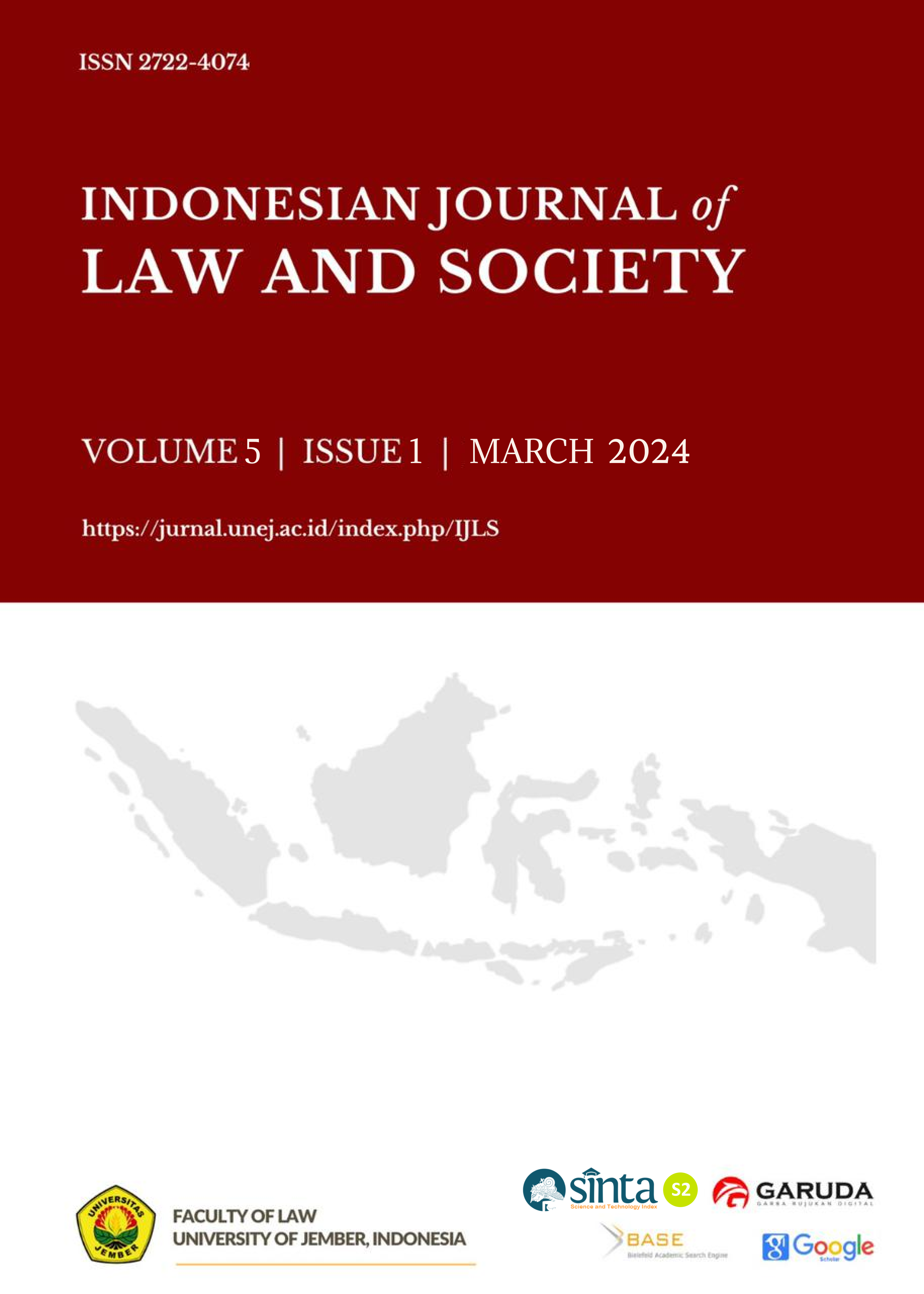Artificial Intelligence (AI) In Judiciary Processes
Between Wild Solutions in The Digital Age And The Irony Of Justice Opportunities
DOI:
https://doi.org/10.19184/ijls.v5i1.42798Abstract
Artificial intelligence (AI) is part of increasingly sophisticated technological developments in various sectors, including in the legal and judicial sectors. The data source used in this paper uses books and other literature in the form of articles in English from 2000 to 2023. Basically, AI can change the flow of trials in court, starting from pre-trial administrative matters and the trial process to post-trial as a form of rehabilitation for all parties. It is even possible that Ai will add other alternatives to the trial in its process so as to make the final decision produce a just and impartial decision. Even so, the application of AI is quite controversial, especially because the parties involved in the previous trial did not understand the matters that could be represented by the implementation of AI. growing points ultimately function effectively in the judiciary process. it's just that, in its management, carefulness is needed so that the trial runs effectively, not the other way around. guidelines must be made regarding AI governance, limitations in its implementation, especially the extent to which AI can work safely in the realm of justice until continuous research is needed on this matter.
Downloads
Downloads
Published
Issue
Section
License
The Indonesian Journal of Law and Society has CC-BY-SA or an equivalent license as the optimal license for publishing, distributing, using, and reusing scholarly work. Authors who publish with this journal retain copyright and grant the journal right of first publication with the work simultaneously licensed under a Creative Commons Attribution-ShareAlike 4.0 International License that allows others with permission from the publisher to share the work with an acknowledgment of the work's authorship and initial publication in this journal.


